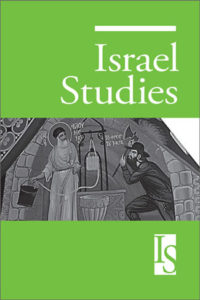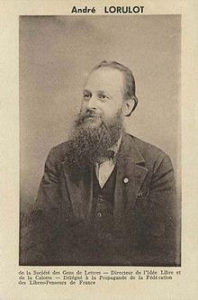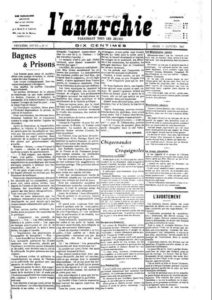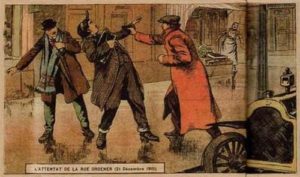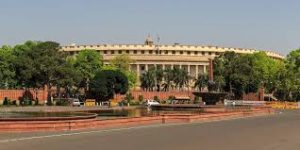 Abstract
Abstract
The 543 members of the Lok Sabha are supposed to replicate the voice of 133 crore Indians. The unparalleled importance of the Lok Sabha makes it important for us to scrutinize the nature and form of arguments presented in it. This paper uses the concept of logical fallacies to do the same. It picks up the debates on four different bills, spread across five days of Lok Sabha sittings. The debates on the chosen bills – the Maternity benefit (Amendment) Bill 2016, the Criminal Law (Amendment) Bill 2018, the Trafficking of Persons (Prevention, Protection and Rehabilitation) Bill 2018 and the Rights of Transgender Persons Bill 2014, mark out the most important Lok Sabha discussions on gender and gender related issues in the first five years of Sri Narendra Modi’s Prime Ministership. The paper points out the logical fallacies committed in them, tries to understand why they were committed and explores what those fallacious arguments indicate with regard to the beliefs and ideologies of the parliamentarians. It shows how the chains of logic in the representatives’ arguments break down as a result of their preconceived notions and biases, lack of information and most importantly- deep seated patriarchy.
Key Words: logical fallacy, gender, parliament, debate, women, transgenders, society
Introduction
During discussions on bills, members speak for a bill, against a bill, or a take a position which is somewhere in between the two. Whichever the case, the members attempt to justify their positions using arguments. These arguments mostly contain valid reasonings or follow a proper logical chain where the premises lead to the conclusions. Sometimes however, the arguments are invalid- the premises in them might not logically lead to the conclusions, they might involve improper assumptions, or they might try to divert the attention from the point of concern. When there are such problems in the reasoning in an argument, the argument is called logically fallacious. Work in the field of pointing of out logically fallacious arguments and classifying them started with Aristotle [i] , and the field has expanded and developed since. “A fallacious argument, as almost every account from Aristotle onwards tells you, is one that seems to be valid but is not so” (Hamblin 1970: 12). In these arguments, the premises don’t lead to the conclusions and there is a mistake in reasoning (Copi, et. al. 2014: 109-110). These arguments have been classified into types considering their individual natures and scopes [ii]. A most common type for example, often found in political arguments is the Ad Hominem fallacy . Here the argument is aimed against the people holding the differing opinion and not the opinion in itself, although “the character of an adversary is logically irrelevant to the truth or falsity of what that person asserts, or to the correctness of the reasoning employed” (Cohen and Nagel 1998: 107).
It is mostly manifested in the form of personal attacks, or as it is called in the political arena-‘mudslinging’. Parliamentarian Shri Tathagata Satpathy for example, in the debate on the Maternity Benefit (Amendment) Bill 2016, dated 9th March 2017 says, “We have been kind of overburdened, bored and sick of this Government just throwing these economy-related Bills on the House and on all of us: the torture of making business easy for a few handful people, who will make money to be paid to political parties, and we are bearing the brunt of passing all those laws which will help a handful of Indians, not the large number of Indians” (130). Regardless of the truth or falsity of his claims, the kind of economic policies pursued by the government has no bearing on the merits/demerits of the bill at hand. The parliamentarian, by saying the above is trying to discredit the character of the supporters of the bill but provides no arguments for or against the bill in itself. Again, during the debate on the Criminal Law (Amendment) Bill 2018 dated 30 July 2018, Professor Saugata Roy said, “I thought for one day, whether what they were saying is right, whether we are proving ourselves to be blood thirsty, thirsty by asking for death penalty for rapists. Then, my conscience told me, no. Those who rape children of 16 or 12 years, do not deserve any mercy. Let them die, if it is proved. That is why, I support this bill. This is not being blood thirsty. This is being just” (244). There might be good enough reasons for supporting capital punishment for serious crimes but here Prof. Roy relies solely on his feelings and what he thinks his ‘conscience’ told him. Such arguments appeal to the hearer’s emotions more than their reasoning, and commit the fallacy called ‘appeal to emotion’ (Wrisley 2018: 98-101). While emotions might be important parts of arguments, an argument solely resting on the waves of emotions and lacking any concrete base of logical reasoning is deemed to be fallacious.
Similarly, there are other fallacies which exist and the paper deals with. The list is presented below [iii] –
– Red Herring: The red herring is a fallacious argument whose effectiveness lies in distraction. Attention is deflected; readers or listeners are drawn to some aspect of the topic under discussion by which they are led away from the issue that had been the focus of the discussion (Tindale 2007: 28-30).
– Slippery Slope: A fallacy in which change in a particular direction is asserted to lead inevitably to further changes (usually undesirable) in the same direction. But the inevitability of the consequences is no way supported by further reasoning (Tindale 2007: 185-187).
– Hasty Generalization: A fallacy of defective induction in which one moves carelessly from a single case, or a very few cases, to a largescale generalization about all or most cases (Tindale 2007: 150-154).
– Strawman: The Straw Man fallacy involves the attribution or assumption of a position, which is then attacked or dismissed. It involves deliberate misinterpretation of the opponent and attacking that weaker version of the opponent’s argument (Tindale 2007: 19-24).
– Irrelevant Conclusion: A fallacy in which the premises support a different conclusion from the one that is proposed. Here the arguer ends up providing arguments for something entirely different than what he/she is supposed to (Tindale 2007: 34-36).
– Post Hoc: This involves representing as causes things which are not causes, on the ground that they happened along with or before the event in question (Tindale 2007: 174- 179).
– Fallacy of Presumption: It is a fallacy in which the conclusion depends on a tacit assumption that is dubious, unwarranted, or false (Copi, et al. 2014: 138-139).
When these fallacies committed by the parliamentarians are revealed and assessed, a large amount of information is revealed about the generalized nature of discussions in the political forum. The red herrings show how members of opposition try diverting attention to the faults of the government, faults which are unrelated to the bill being discussed. They also show how the government tries to bend the focus towards issues they have a better record at, while escaping the complexities of the discussion. The slippery slopes on both sides give us glimpses of the illogical fears which exist hidden among representatives of the various shades of the political spectrum.
The hasty generalizations sometimes reveal unfortunate attitudes of casual sexism and the false presumptions help us gain a sight of the deep-seated patriarchy in Indian minds. The revelation of fallacies also helps us understand the various strategies (ethical or otherwise) used by the political leaders to sway public opinion.
Among the bills under consideration is the Maternity Benefit (Amendment) Bill which increases the time period of maternity leave for women working in the organized sector from 12 weeks to 24 weeks, the Criminal Law (Amendment) Bill makes punishment for rape against female minors much more stringent, and makes it possible to award death penalty to criminals who raped girls under the age of 12, the Trafficking of Persons (Prevention, Protection and
Rehabilitation) Bill strengthens the mechanism of prevention and makes provisions for rehabilitation of victims of human trafficking, and the Rights of Transgender Persons Bill aims to improve the lives of the transgender community and involves their institutionalized identification and registration.
Methodology
The 16th Lok Sabha sat for a total of 1615 hours spread over 331 days and passed 133 bills. The written records of all these discussions are available online in the official website of Lok Sabha [iv]. However, an in-depth analysis of all these documents is extremely difficult, also since a wide variety of issues are discussed in the house, drawing conclusions would be almost impossible. Hence a single subject had to be chosen, bills involving which could be analyzed. In
contemporary India, where gender issues often dominate public discussions and all sides of the political arena claim to be champions of ‘promoting the welfare of women’ if not gender equality per se, gender issues seemed to be the best candidate. Now, in the first five years of Modi era, five bills intricately related to gender issues were discussed in the Lok Sabha- the Maternity benefit (Amendment) Bill 2016, the Criminal Law (Amendment) Bill 2018, the Trafficking of Persons (Prevention, Protection and Rehabilitation) Bill 2018, the Rights of Transgender Persons Bill 2014, and the Muslim Women (Protection of Rights on Marriage) Bill, 2017, discussions regarding four of which have been included. The discussion which occurred on the Muslim Women (Protection of Rights on Marriage) Bill, however, was unfortunately much more on the lines of religion and the acceptability of state intervention on matters related to religion than on the lines of gender issues or rights of women. Hence, the paper had to exclude the discussion on that bill from the analysis as the inductions from the fallacies committed in that discussion would have been very different in nature and would not have helped the cause at hand. The discussion on the Maternity Benefit (Amendment Bill) was held on 9 th March 2017, the discussion on the Criminal Law (Amendment) Bill was held on 30 th July 2018 and the discussion on the Trafficking of Persons (Prevention, Protection and Rehabilitation) Bill was held on 26 th July 2018. Two days of discussion on the Rights of Transgender Persons Bill has been considered – 26 th February 2016 and 29 th April 2016. It must be mentioned that only the written records of the proceedings of the house, which is available in public domain in Lok Sabha’s official website, has been considered [iv]. The recorded debates were scrutinized, and all the arguments by all the speakers were taken into account. In each of these arguments, it was checked if the premises of the arguments lead to the conclusions. If not, the type of fallacy committed was found out. In the process, all the logical fallacies committed by the members in the debates were marked out and classified. An attempt to contextualize the various groups of fallacious arguments followed and all the information the exercise could provide was collected. The result of the same has been presented below.
Diversion of Attention
During the debates, attempts were often made to divert attention from the bills at hand through red herrings, sometimes towards issues completely unrelated to gender. Mostly the parliamentarians used it to showcase the apparent commendable jobs of the governments with which they associate themselves. During the debate on the Maternity Benefit Bill, Shrimati M. Vasanthi from Tenkasi, Tamil Nadu, used more than 25% of her speech [v] to describe in detail the Cradle Baby Scheme, the Integrated Child Development Scheme, the newly available Mobile Anganwadi services, the Amma Canteen Scheme, and other such policies and actions of the Tamil Nadu state AIDMK government (126)[vi]. While a few of these policies had significant impact on gender issues, they had no connection with the issue that was the subject of discussion in the house. Similarly, during the same debate, Member of Parliament Dr. Sanjay Jaysawal claimed that no government did nearly as much as the then national government, pointing towards the benefits of the Ujjwala Yojna (160). Sri Om Birla from Kota, during the discussion on the Trafficking of Persons Bill tried to present to parliamentarians the apparently wonderful work done by the national government in uplifting the 115 backward districts of the country (142). During the same debate, Shrimati Maneka Gandhi, after accepting “this is not relevant to this subject” went on to talk about the rape kits distributed by the national government and its numerous benefits (225). Sri Arvind Sawant, during the discussion on the Maternity Benefits Bill tried to impress upon other parliaments how he had pressed for the availability of washrooms for women in local trains and metros in a meeting regarding railways (135). The use of red herrings to make Lok Sabha speeches sound like advertising campaigns reduces the time devoted to nuanced discussion of the bills on the table. In none of these cases did the parliamentarians attempt to justify or point out the relevance of what they said with regards to the subject of debate. It shows us what our parliamentarians want us to focus on. The most jarring red herring was probably committed by Sri Ramesh Biduri, who during the debate on the Maternity Benefits Bill, after attempting to point out the lack of any activity on government’s side during the last 60 years, started expressing his disapproval of the continuing practice of polygamy among Muslims and the perceived high fertility rates among Muslim women (185).
Fear Mongering and Insults
Slippery Slopes were used by some parliamentarians for fear mongering about the impacts of the bills, presenting worst case scenarios as the only possible results of bills. Their arguments had conclusions which were possible, but highly improbable. Dr Shashi Tharoor somehow “clearly” saw the intervention of some “vested interests” because the draft bill against trafficking of persons had no provision for regular inspection of shelter homes (132). Because the bill talked about cooperation with the private sector, Mr. Tharoor asked, “Are we now through the law empowering a nameless set of companies to profit from dealing with the trafficking of persons?” (135). Similarly parliamentarian Tathagatha Satpathy declared that “we will eventually be nabbing and seizing the properties of the farmers, nabbing these middlemen and topping the flow of migrant labor, which is essential for even developed States”, because the Trafficking of Persons Bill has provisions allowing the police to conduct raids and seize properties which are suspect of being used for trafficking (155). Conversely, some parliamentarians put forth horrible things as definitive impacts if the bill is not passed and asked for support. Srimati Maneka Gandhi said, “If today we do not pass this Bill, we are choosing to deny Tara and all the millions like her the fundamental right to life and liberty” (116).
During the discussion on the Transgender Persons Rights Bill the subject to be feared was interestingly ‘reservations for transgenders’ which some of the parliamentarians had suggested but was not any of the apprehended impacts of the bill. Members of parliament Sri Ramesh Biduri and Nishikant Dubey were sure that transgenders will be alienated from the society and their integration would be impossible if there are any provisions of reservations for transgenders (195)[vii]. Parliamentarians Kuwar Bharatendra Singha and Ravindra Babu somehow felt that reservations would lead to “perpetuation of this transgender quality” and a massive increase in the number of transgenders would be inevitable (184). These slippery slopes give us a glimpse of the fears in the minds of parliamentarians, and the parliamentarians being the citizens’ representatives, the fears of the citizens. Sometimes far-fetched benefits of government actions were pointed out by parliamentarians like Srimati Jaashebeen Patel who believed that the Prime Minister’s order to keep malls and cinema halls open round the year would somehow lead to significant increases in women’s employment (179).
Like most other political forums of the country, the Lok Sabha often sees a prosperous trade of accusations and insults. While this is unfortunately unsurprising, it must be remembered that ad hominems hardly add anything of value to the discussions, but rather reduce the space for effective communication and consultation. During the discussion on the Maternity Benefits Bill, parliamentarian Tathagata Satpathy, accused the government of only helping the rich who contribute to their funds, and engaging in “nefarious activities” (134). Sri Ramesh Biduri accused the Indian National Congress of engaging in nautanki (unnecessary drama) for vote and not truly wishing the empowerment of women (184). Professor Saugata Roy was dissatisfied with the wording of the Criminal Law Amendment Bill and accused government officials of not knowing proper English (242). Mr. Assaduddin Owaisi claimed that the track record of the government showed that they support the “perpetrators of child rape” (285).
Disregarding Heterogeneity
The fallacies which probably reveal the most about the minds of parliamentarians are hasty generalizations- where probable characteristics of a few in a class are associated with all of the members in the class. They reveal the biases and stereotypes in the minds of parliamentarians.
Gender stereotypes being prominent in India, the number of hasty generalizations committed by parliamentarians during discussions on gender related bills is expectantly high. Sometimes the fallacy was used to make the expected beneficiaries of the bill look extremely pitiable- subjects for whom sympathy should overflow. In doing so, the speakers, mostly men, established themselves in a position superior to those of the women. Three of Mr. Ravindra Babu’s fallacies are instructional in that respect. During the debate on the Maternity Benefit Bill, he commented, “From the time of menarche, that is attaining puberty, till menopause it is very-very difficult to understand, even to hear, the problems faced by a girl” (138). The parliamentarian here makes the experiences of all females sound extremely painful and on the same breadth makes them un-understandable and hence impossible to empathize with. During the discussion on the Criminal Law Amendment Bill, parliamentarian Ravindra Babu referred to females as “members of the weak sex” (254) and tried to arouse the sympathy of his fellow parliamentarians (most of whom belong to the stronger sex) for this supposedly naturally weaker half of the population. He also claimed, “The poor people, especially the girls in the villages do not even know what sex is” (255). While the opinion that a significant portion of the human population has no idea about the basic human activity which leads to the creation of humans might sound ridiculous, it points out the parliamentarian’s and popular conception of the ‘Indian village girl’- who is kept away (sometimes forcefully) from everything related to sexuality and is hence good and pure and deserving of all the sympathies of the members of the parliament.
A different use of hasty generalizations had been to make all members of the beneficiary group look already benefited and privileged, and therefore less deserving of attention and affirmative action. During the discussion on the Maternity Benefit Bill parliamentarian Tathagata Sathpaty said that the “world is turned” and now it’s more about “how the women folk want to deal with us” (130). While it can’t be ascertained if the esteemed member said the above with sadness, the statement clearly shows that he is unseeing the deep rooted and systematic gender discrimination against women prevalent all around us. Srimati Kakoli Ghosh Dastidar tried to draw attention “to the fact” that women are now finding it difficult to conceive because they are marrying at a later age as a result of their educational aspirations, i.e. the victims of the problem created the problem (159). Sri Vinayak Raut made a sweeping declaration during the debate on the Trafficking of Persons Bill that all the beggar children of Mumbai are from well-to-do households (157). During a discussion on the Transgender Persons Bill on 26 February 2016, parliamentarian Pralhad Singh Patel stated that education of transgender persons was not a concern because he knew one transgender MLA who had a MA degree (183). During the same discussion came probably the greatest Hasty Generalisation. Parliamentarian Kuwar Bharatendra Singh shared the knowledge he had gained from a documentary. He explained how the number of transgenders in India is eerily high and only so because transgender communities have been forcefully castrating children for years (183). He effectively communicated his perception of transgenders as horrible criminals and with it probably also gave us a glimpse of his internal transphobia.
Sometimes hasty generalizations by members led to oversimplification of complex problems. Mr. Tathagata Sathpaty expressed his opinion that all rapes ultimately happen because men aren’t able to resist their temptations (133). This understanding of rape erases the important associations of gender violence with other sociological issues, understanding of which is necessary for finding solutions to the problem. Similarly, during the discussion on the Criminal Laws Amendment Bill Srirang Appa Barney attributed a single reason to rise in crime rates- lack of fear for the police forces (252). Other hasty generalizations made the world around us look far worse than it can possibly be. Parliamentarian Pinaki Mishra for example, during the debate the Criminal Acts Amendment Bill declared that during her 35 years of experience as a lawyer, no rich man had gone to the gallows in India (250). Sri Om Birla, during the discussion of Trafficking of Persons Bill likewise declared that empathy has ended in India (145).
A different set of hasty generalizations were used by proponents of death penalty for criminals convicted of rape of minors, when other arguments ran out of fuel during the discussion of Criminal Laws Amendment Bill. They imposed their personal opinions as the opinions of all others, creating the impression that everyone wanted what they wanted, although having no proof of it. Srimati Butta Renuka said that all women felt that rapists of minors deserved no punishment other than death (273). Srimati Meenakshi Lekhi likewise declared that the ones opposing death penalty will support the same if tragedy strikes their own homes (277).
Again, a different set of hasty generalizations were observed during the discussion on the Trafficking of Persons Bill regarding the nature of work that is prostitution. Several parliamentarians found it impossible to believe that a woman might engage in prostitution by her own free will. They saw the necessity of their being some compulsion. Parliamentarian Supriya Sule pointed the compulsion as often being an economic one and said, “This is not something that she does out of choice. She does that either to feed her children or to protect her family. Why else would she do it?” (175). Sri Dharambir (181) and Shrimati Lekhi were of the same opinion- each and every woman abides by, and has no intent of questioning, the laid down norms for engaging in sexual activity; if the norms were violated, that is because the woman was compelled. This reasoning forces down a set of moral values on every woman without their consent. Worse still, it invisiblizes the women who might not accept these set of morals and might freely choose to engage in prostitution. The moral nature of the argument is made clear by Srimati Lekhi’s statement, “If I do not want my children to go, how can I tell somebody else’s children to go? It is not a trade; it is not a profession and the country thinks very strongly that this is not a profession” (187). How she knew what the country thought, remains an open question.
Misquotes, Irrelevant Statements and Fiery Speeches
A different kind of fallacy- strawman, was observed where some parliamentarians changed what another parliamentarian had actually said and attacked the changed, and easier to attack, version of the argument. While it is difficult to conclude if the parliamentarians changed their fellow members’ statements willingly to make their arguments weak or it occurred as a result of genuine miscommunication, strawmans always degrade the quality of debate. For example, during the discussion on the Trafficking of Persons Bill, Srimati Meenakhshi Lekhi criticized Dr Shashi Tharoor’s apparent opinion that the rescued should be sent back to their families (185).
But in actuality, the parliamentarian never said the same and had just pointed out that the rescued victims kept in shelter homes are sometimes forcefully kept away from their families. Sometimes the parliamentarians apparently provided reasonings and logics to support their arguments, but in reality, those reasonings and logics had no link with the conclusions of their arguments. This is the fallacy of irrelevant conclusion. The supporters of death penalty for rapists used irrelevant conclusions too. Parliamentarian Ravindra Babu termed the rapists “psychotics and maniacs” and gave that as a reason to justify their death penalty (254). However, if indeed the rapists are ‘psychotics and maniacs’ and mentally unstable, they become less criminal and more worthy of medical treatment in place of punishment.
Another tactic that the supporters resorted to was stirring up emotions as apparent valid reasons and premises behind their arguments. They said that since it felt right, it is right. Professor Saugata Roy said that he had asked himself if he was right in supporting death penalty for child rapists and his conscience told him yes, he was; therefore, he said that the bill was no way blood thirsty and only just (244). Shrimati Supriya Sadanand Sule agreed with Prof. Saugata saying that she was wondering if the law was regressive, but then she imagined herself and her child in the place of the victim, felt what a victim would, and knew that it wasn’t (270).
Parliamentarian Neoning Erring said, “…in the recent cases of Unnao and Kathua where we really felt bad” (293) and therefore death penalty was justified. Another way the fallacy of appeal to emotion is used is by stirring up feelings of guilt and pity and suppressing logical thought and speech (Tindale 2007: 113-116). As an example, we can look at what Shrimati Maneka Gandhi said while discussing the Trafficking of Persons Bill, where she puts forward a hypothetical worst -case scenario and says we have no institutions or processes to improve the situation other than passing the bill:
How then can we sit silent and let women and children be bought and sold like slaves? When an 11-year old Tara is trafficked from her village, sold into bonded labor, beaten and burnt by her owner, how do we save her? When she is sold for marriage to a 45-year old man and raped every day for months, how do we save her? We have no institutions and no processes to do so. (116)
False Causes and False Assumptions
Another fallacy that was used is the post hoc fallacy. Here two things are assumed to have a causal relation between them just because they happen together. This often leads to an oversimplification of problems and misunderstanding of causes. This is often used to pin the blame of new societal problems on certain new changes in the society which might be positive.
Sri Harish Meena for example, during the debate on the Criminal Laws Amendment Bill said that crimes against women are increasing because of social media, television and pornography. But he made no attempt to explain how the causal relation worked (291). In some cases, the premises used by parliamentarians to support their arguments are simply false. They can be a result of misconceptions, wrong assumptions, mistakes or deliberate falsehoods. These arguments contain the fallacy of false presumption. For example, during the debate on Maternity Benefit Bill, Shrimati M. Vasanthi stated that there are more women than men in the country (124). During the debate on the Criminal Acts Amendment Bill, parliamentarian Ravindra Babu shared his thought that the women who are victims of rape “will never remain human beings” (255). The largest number of ‘misconceptions’ surrounded transgenders. Kumar Bharatendra Singh asked why we so many transgenders in India- much larger than their proportion in the world while there is no statistical basis of the claim. Another interesting misconception was seen in the speech of parliamentarian Ravindra Babu during the same debate who said, “When they prefer the same sex for their partnership, that is the first sign of a transgender”, and completely mixed up gender identity with sexual orientation. The above shows how transgenders and other persons from the LGBTQ community have been completely sidelined and suppressed; so much so that glaring misconceptions regarding them exist among people’s representatives and lawmakers who are making laws for them, and hardly anyone points it out when those are exposed in the highest forum of debate in the country.
Related Works
Since parliaments are the highest forums of debates and the records of parliamentary debates are easily accessible, a large amount of research work surrounding parliamentary debates and discussion exist. In many cases, computerized textual analysis was performed. However, the tools of analysis used in researches vary widely. In a work titled ‘Analysis of Speeches in Indian Parliamentary Debates’ by Sakala Venkata Krishna Rohit and Navjyoti Singh, an attempt is made to provide a dataset for the synopsis of Indian parliamentary debates and perform stance classification of speeches. Javed Ahmed Bhatt in his work titled ‘Disruption in Proceedings of Indian Parliament: an Exploratory Study’ analyses the extent and role of disruptions in Indian Parliamentary proceedings. Jennifer E. Cheng tried to understand Anti-Racist Discourse with regard to Muslims in the Australian Parliament using the tool of Critical Discourse Analysis in her work titled ‘Anti-racist Discourse on Muslims in the Australian Parliament’. Likewise, several other woks attempt to throw light on a variety of issues using the discussions in parliaments using various tools. Very few however use ‘logical fallacies’ as the scope to look at parliamentary debates. The only other work which could be found to be using logical fallacies as a tool to analysis parliamentary debates was one titled ‘Analysis of Fallacies in Croatian Parliamentary Debate’ by Gabrijela Kišiček & Davor Stanković of University of Zagreb. It tries to understand the overall tendency of parliamentarians to commit logical fallacies and if and how differences in the same exist with regard party lines and official position. It uses a much more
quantitative approach and is less engaged in attempting to throw light on other social issues using the analysis of fallacies. The tool of logical fallacies have been widely used however by media outlets to analyze discourse outside the parliament like speeches by politicians, reports and other documents.
Conclusion
On the whole, 11 Red Herrings were committed in the debates taken into account. 12 Slippery Slopes, 8 Ad Hominems, 24 Hasty Generalizations, 3 Strawman fallacies, 4 Irrelevant Conclusions, 4 Appeal to Emotions, 1 Post Hoc Fallacy and 9 False Presumptions were also committed. It must be remembered that only the written records of the debates were analyzed, where by and large only the statements of the members recognized by speaker are included. If the analysis occurred based on videos, the number of fallacies found might have been higher.
It is very difficult to know if members actually knew that they were committing fallacies and not making any true contribution to the discussion of the house while committing them. A parliamentarian might commit a red herring fallacy during the discussion on a bill in his attempt to put forward a point he couldn’t put forward during the Zero Hour. A parliamentarian might commit a hasty generalization believing that is not a generalization but a scientific truth.
However, these breaks in the logical chain of parliamentarians help us get a glimpse of their inner thoughts and assumptions, and through the understanding of those in our representatives, we can try to understand the same of our country.
Many have recently commented that a quality of debate in the houses of the parliament has fallen [viii] . The veracity of the opinion can be tested through a comparative analysis of debates under the light of logical fallacies. Our representatives in the parliament make the laws of the country and many of them are also involved in policy making and implementation. Hence it is important for us to pay adequate attention to them and their ideas, and also point out their
mistakes when committed and strive for better service on their part. An important tool to help us in the same can be an understanding of logical fallacies.
Notes
1. Aristotle was the first to begin categorizing fallacies in a systematic way, first under the title of ‘sophistical refutations’, in a work of that title which provided a list of 13 fallacies, and later with a revised list in ‘The Rhetoric’. There is also a treatment of fallacy in his work ‘Prior Analytics’.
2. Fallacies are largely classified into formal and informal fallacies. This paper deals with informal fallacies because no formal fallacy could be found in the relevant texts. Informal fallacies are the ones mostly committed during verbal speeches.
3. The list only includes those fallacies which were found in the relevant texts. There are a large number of other recognized fallacies.
4. The verbatims of the parliamentarians’ speeches are recorded during Lok Sabha proceedings and are made available in http://loksabhaph.nic.in/Debates/textofdebate.aspx within a few days. The records mostly only include the speeches of the speakers recognized by the honorable Speaker of Lok Sabha and are subject to his/her demands for deletion and edition of content. Recordings of each day of Lok Sabha proceedings are
available in separate documents. The discussion regarding the Maternity Benefit (Amendment) Bill is available in
http://loksabhaph.nic.in/Debates/textofdebate.aspx?tab=1&lsno=16. The debate on the Criminal Law (Amendment) Bill is available in
http://loksabhaph.nic.in/Debates/textofdebate.aspx?tab=1&lsno=16. The debate on the Trafficking of Persons (Prevention, Protection and Rehabilitation) Bill is available in http://loksabhaph.nic.in/Debates/textofdebate.aspx?tab=1&lsno=16. The debate on the Rights of Transgender Persons Bill which occurred on 29 April 2016 is available in http://loksabhaph.nic.in/Debates/textofdebate.aspx?tab=1&lsno=16. The debate on the Rights of Transgender Persons Bill which occurred on 26 February 2016 is available in http://loksabhaph.nic.in/Debates/textofdebate.aspx?tab=1&lsno=16. The parent website where the documents are available is maintained by National Informatics Centre (NIC).
5. The percentage is the percentage of words out of the total number of words of her full speech she had used up in the Red Herring.
6. The numbers within brackets represent the page number of the document which contains the debate where the relevant speech can be found.
7. In all cases where the date is not mentioned, debate or discussion on the Transgender Persons Bill refers to the Lok Sabha debate on the bill which took place on 29 April, 2016.
8. On 1 January 2019 the prime minister of India, Sri Narendra Modi told the news agency ANI in an interview that the quality of debates in the Lok Sabha is decreasing. Many other groups and public figures have expressed similar opinions.
Works consulted
Bhatt, Javed (2019): “Disruption in Proceedings of Indian Parliament: an Exploratory Study”, International Journal of Recent Technology and Engineering, Volume-7, Issue-6S5, April 2019, URL- https://www.ijrte.org/wp-content/uploads/papers/v7i6s5/F10770476S519.pdf
Cheng, Jennifer (2017): Anti-racist Discourse on Muslims in the Australian Parliament, Amsterdam: John Benjamins Publishing.
Cohen, Morris and Ernest Nagel (1998): An Introduction to LOGIC and SCIENTIFIC METHOD, New Delhi: Allied Publishers
Copi Irving, et al. (2014): Introduction to Logic, Fourteenth Edition, London: Pearson Education
Dube, Leela (1996): “Caste and Women”, Caste: Its twentieth century avatar, New Delhi: Penguin, pp 1-27.
Hamblin, Charles (1970): Fallacies, London: Methuen
Kisicek, Gabrijela and Davor Stankovic (2010): “ISSA Proceedings 2010: Analysis Of Fallacies in Croatian Parliamentary Debate”, Rozenberg Quarterly The Magazine, URL- http://rozenbergquarterly.com/issa-proceedings-2010-analysis-of-fallacies-in-croatian-parliamentary-debate/
Kumar, Radha (1999): “From Chipko to Sati: The Contemporary Indian Women’s Movement”, Gender and Politics in India, New Delhi: Oxford University Press, pp-342-369
Merry, Sally E. (2009): Gender Violence: A Cultural Perspective, New Jersey: John Wiley and Sons
Rohit, Sakala and Navjyoti Singh (2018): “Analysis of Speeches in Indian Parliamentary Debates”, arXiv, Cornell University, URL-
https://arxiv.org/pdf/1808.06834.pdf
The Lok Sabha Secretariat (2017): “Debate on the MATERNITY BENEFIT (AMENDMENT) BILL, 2016”, Sixteenth Series, Vol. XXII, Eleventh Session,
March 09, 2017, p. 620-725
The Lok Sabha Secretariat (2018): “Debate on the STATUTORY RESOLUTION RE: DISAPPROVAL OF CRIMINAL LAW (AMENDMENT) ORDINANCE, 2018 AND CRIMINAL LAW (AMENDMENT) BILL, 2018”, Sixteenth Series, Vol. XXXII, Fifteenth Session, July 30, 2018, p. 1441-1582
The Lok Sabha Secretariat (2018): “Debate on the TRAFFICKING OF PERSONS (PREVENTION, PROTECTION AND REHABILITATION) BILL, 2018”, Sixteenth Series, Vol. XXXII, Fifteenth Session, July 26, 2018, p. 691-873
The Lok Sabha Secretariat (2016): “Debate on the RIGHTS OF TRANSGENDER PERSONS BILL, 2014”, Sixteenth Series, Vol. XVII, Eighth Session, April 29, 2016, p. 767-823
The Lok Sabha Secretariat (2016): “Debate on the RIGHTS OF TRANSGENDER PERSONS BILL, 2014”, Sixteenth Series, Vol. XV, Seventh Session, February 26, 2016, p. 834-852
Tindale, Christopher (2007): Fallacies and Argument Appraisal, New York: Cambridge University Press
Weston, A. (1992): A rulebook for Arguments, Indianopolis: Hackett Publishing
Wrisley, George (2018): “Appeal to Emotion: Force or Fear”, Bad Arguments: 100 of the Most Important Fallacies in Western Philosophy, New Jersey: John Wiley & Sons, pp- 98-101
About the author
Sohom Roy is an undergraduate student of Cluster Innovation Centre, Delhi University, studying Interdisciplinary Social Sciences
